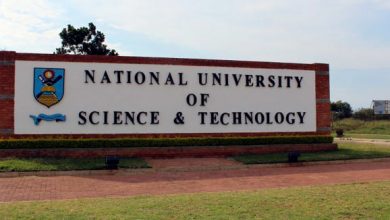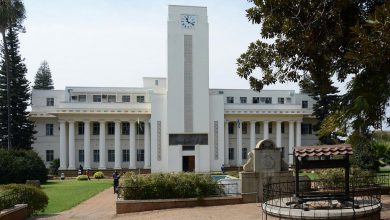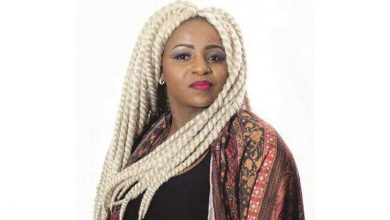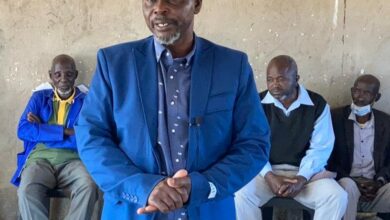Memory under attack: Activists furious as another Bhalagwe Gukurahundi plaque vandalised
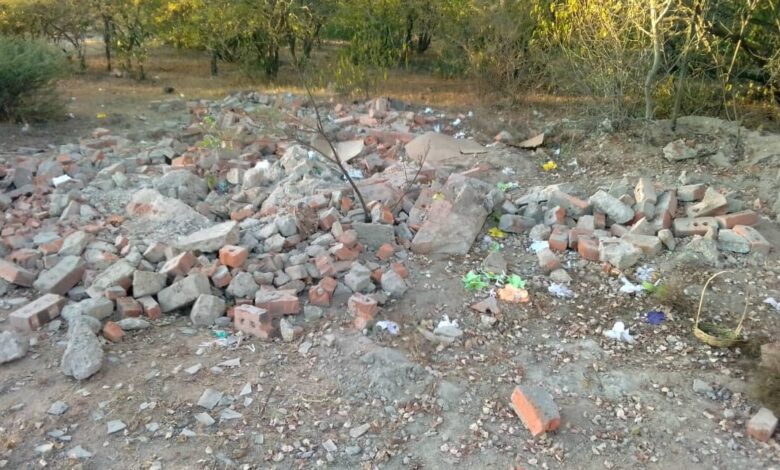
The destruction of the fourth plaque at Bhalagwe, in Matabeleland South which was put up in memory of the Gukurahundi victims has angered human rights activists who see it as an attempt to destroy the memory of the 1980s genocide.
Bhalagwe was the epicentre of the mass killings orchestrated by the government-deployed 5th Brigade, which killed thousands of people in Matabeleland and Midlands provinces.
In an attempt to preserve the memory of the genocide, Ibhetshu LikaZulu, a pressure group, has erected four plaques at Bhalagwe but unknown people have destroyed all of them.
The latest incident happened on Wednesday.
Read: https://cite.org.zw/fourth-gukurahundi-plaque-vandalised-in-bhalagwe/
Secretary of Ibhetshu LikaZulu, Mbuso Fuzwayo bemoaned how criminal acts continued to affect their work on Gukurahundi yet no one has been arrested but agents continue to threaten community leaders.
“System criminality continues on Gukurahundi genocide. They destroyed plaques put up by the community at Bhalagwe on 21 February 2024. They went all out and re-destroyed the other plaques. This sadist criminality points to the system,” he said.
“If this is not revictimisation and continuation of Gukurahundi then we don’t know what it is. We will never tire.”
Ntabazinduna Chief Felix Nhlanhlayamangwe Ndiweni first expressed his views on how the government is dictating how people in Matabeleland should mourn Gukurahundi victims on March 21, 2024, when he chastised the Zanu PF government for commissioning a monument at the Pupu Battle site while refusing to allow locals to erect monuments for genocide victims.
In an open letter, Chief Ndiweni said Ndebele people had tried four times to erect monuments near mass graves emerging from the genocide and on each of those occasions, those monuments were “destroyed by the Zanu PF administration.”
In a sense, the chief suggested the Zanu PF government is ordering how people in Matabeleland should mourn Gukurahundi victims arguing how it is allowing other events and banning others.
In an interview with CITE, critical studies scholar, Dr Khanyile Mlotshwa said selective memorialisation was seen in how the government was developing its own Gukurahundi reconciliation programme under the leadership of the National Chiefs Council.
Dr Mlotshwa said if the government wanted to promote unity and not seem to be ‘selective’ or choosing what people must mourn and how they do it, it should investigate and arrest perpetrators.
“These attacks on the plaques are a serious insult to people of a certain identity in the Zimbabwean rainbow nation. The Zimbabwean government must take them as a serious threat, as undermining the country’s nationhood,” he said.
“Considering that this is the fourth time, it is shocking that some people are offended by the victims’ tears rather than the deaths that occurred in the early years of our independence.”
Dr Mlotshwa said in the context of the reconciliation efforts led by the chiefs, this matter must be addressed.
“If the government has been brave enough to face the atrocities and try to deal with them, it must, through the police, be brave enough to bring the people who are adding salt to a section of the nations’ injury,” he noted.
An analyst, Patrick Ndlovu, said the destruction of those plaques was proof that the government was not sincere about memoralising Gukurahundi victims.
“People should look no further than the destruction of those plaques. It’s an open secret that the State is using its functionaries to carry out the evil misdeeds,” he said.
Ndlovu added that the chiefs reconciliation programmes on Gukurahundi was just a “managed open discussion” or a “management mechanism” to deal with an increasingly restless population that is finally demanding answers and accountability.
“We should also not discount the mortality of the perpetrators who are increasingly aware of their date with the Creator,” he said.
Another analyst, Bernard Magugu, echoed the same sentiments and said he was sure “there is someone known by the State doing all these things.”
“To prove my point, let someone destroy a Zanu poster or ED banners during the night, he or she will be found and be arrested the next day yet no one has been arrested for destroying plaques at Bhalagwe,” he said.
“This really shows the reconciliation claims are insincere and fake, being manufactured in the deepest holes of darkness laced with deceit.”
Magugu advised traditional chiefs who will hold consultative meetings to remain loyal to truth-telling and truthful means of problem-solving and not be used.
According to an opposition politician, Iphithule Maphosa, since the State has refused to admit it was responsible for Gukurahundi or that it was a genocide, “naturally, it would not allow memorialisation at Bhalagwe and many other mass graves dotted all over Matebeleland and Midlands.”
“Allowing such is tantamount to admitting,” Maphosa said. “In essence, an admission means that a process of resolution must begin, which the State is not prepared for since the major players are today in power”.
Maphosa said the resolution to Gukurahundi “in its genuine form” will have to include truth telling, justice-both restorative and punitive, which he noted is the biggest fear of the perpetrators. “The talk and claims that Gukurahundi can be discussed is just hot air. All the purported programmes and efforts at resolving this genocide are just but window dressing tactics by the perpetrators who don’t want to be accountable for their actions,” said the politician


